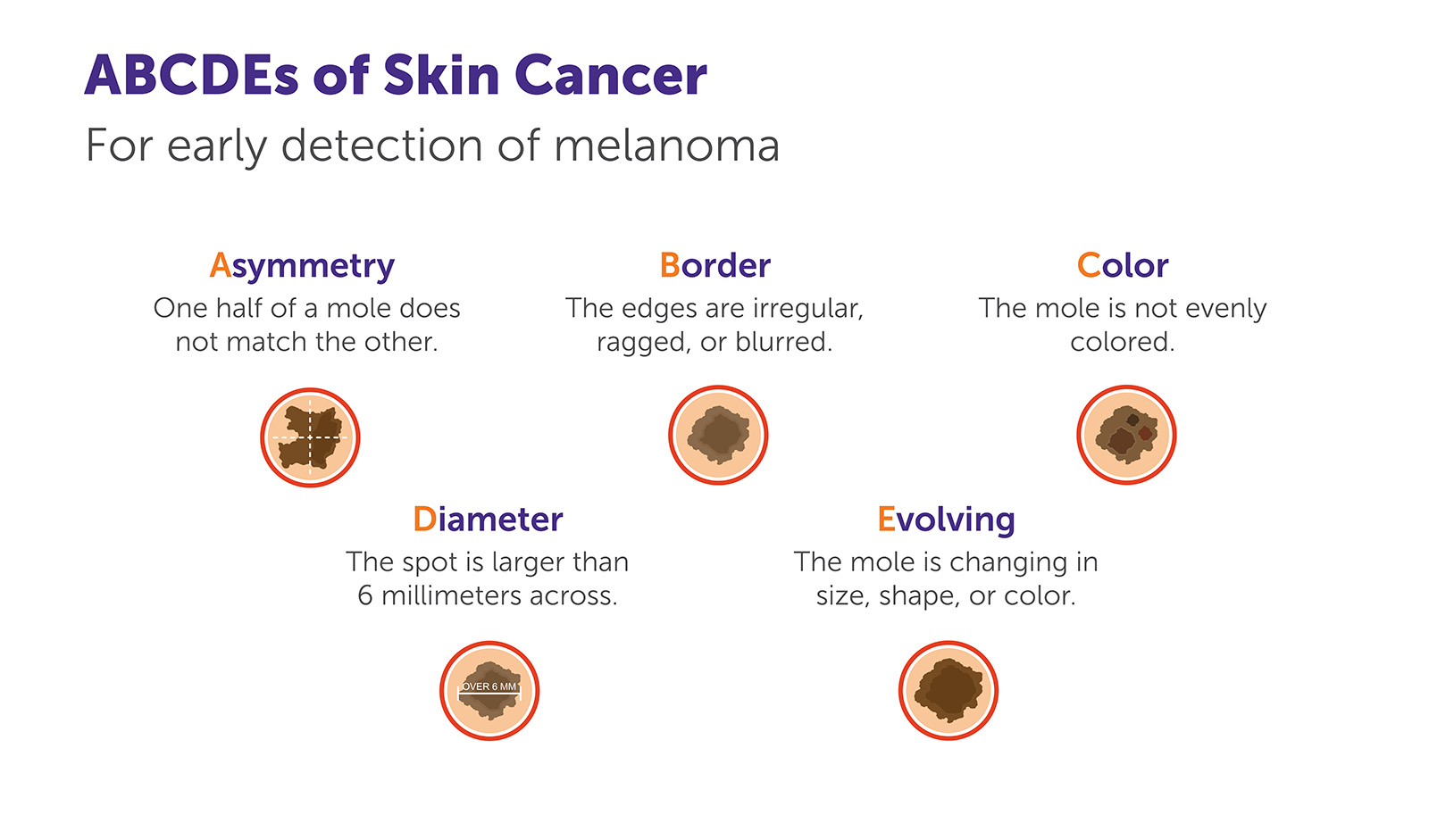Advanced Care for Patients With All Stages of Melanoma
At Saddleback Medical Center, our multidisciplinary melanoma care team collaborates to detect, treat, and provide follow-up care for patients with all types and stages of melanomas. Our specialized team includes a board-certified dermatologist, medical oncologists, radiation oncologists, and general surgeons, who develop individualized treatment plans for each of our patients.
Our goal is to catch melanomas early. Novel treatment options continue to emerge for both early and late-stage melanomas, however, early detection and prevention are still the best treatment options.
What Is Melanoma?
Melanoma is a type of skin cancer that occurs in melanocyte cells. These cells produce melanin, which colors your skin, hair, and eyes. Melanoma shows up as moles, spots, or blemishes on the surface of the skin, making it easy to detect. It’s important to catch melanoma in its early stages because it can metastasize to lymph nodes and organs.
What Causes Melanoma?
The majority of melanoma is caused by exposure to ultraviolet (UV) rays but can also be caused by a combination of family history, genetics, and environmental factors.
What Does Melanoma Look Like?
Melanoma looks different from person to person, and even spot to spot on the same person. Use the ABCDEs of skin cancer when checking your moles, spots, and blemishes. If anything looks suspicious be sure to contact your doctor right away.

How Can I Prevent Melanoma?
Protect yourself from UV rays all year, not just in the summer, and avoid indoor tanning. Take extra precautions outside when the UV index is above 3 such as:
- Staying in the shade
- Wearing clothing that covers your arms and legs
- Wearing a hat with a wide brim
- Wearing sunglasses
- Using sunscreen with an SPF 15 or higher
What You Can Expect From Our Melanoma Clinic
Diagnosing & Staging
Our dermatologist will examine you for concerning moles, blemishes, and spots. If an area of concern is found, they will remove a sample for testing and staging. The stage of the cancer is determined by the thickness of the melanoma, with thicker melanomas resulting in a more serious, higher stage melanoma.
For melanomas of 1mm or deeper, a sentinel lymph node biopsy is usually performed to check if the cancer has spread to nearby lymph nodes. Sentinel lymph node biopsies are typically performed in conjunction with excision surgery.
Treatment
Most melanomas are treated by surgical excision of the concerning area. Gene expression profiling can be used to further manage early-stage melanomas, as early-stage melanomas put you in a higher risk category for recurrence or metastasis.
If you are high risk for recurrence or metastasis based on gene expression and/or sentinel lymph node positivity, our melanoma care team will deliver the latest advancements in melanoma treatment including radiation therapy, immunotherapy, chemotherapy, and targeted therapy. Our melanoma care team will individualize your treatment plan based on the stage of your melanoma and your risk stratification.